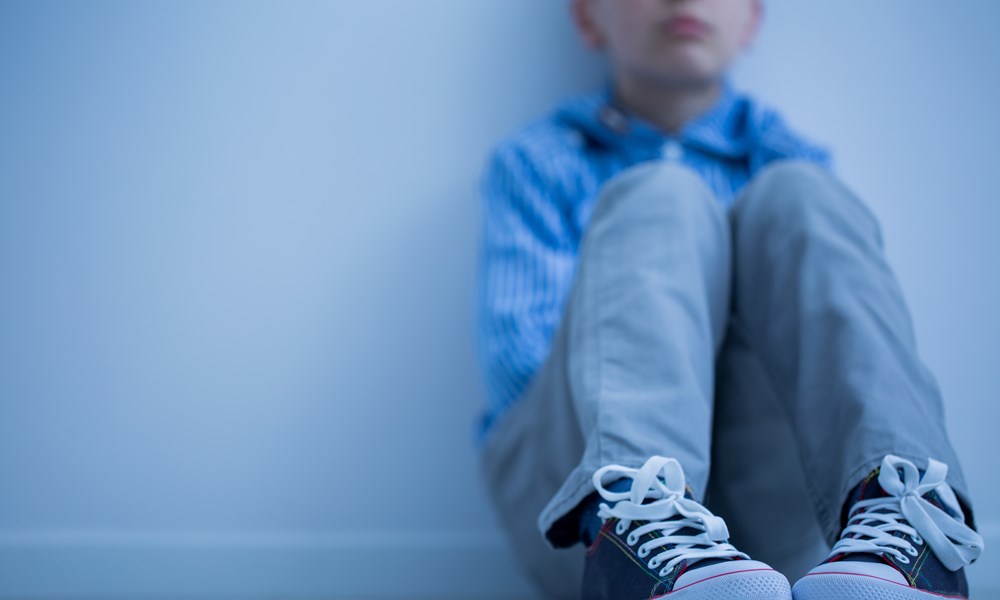
BELIEVING SURVIVORS
Dangerous Denial
February 06, 2019
Several years ago I took part in a presentation for young parents about keeping their kids safe from sexual abuse. As an important part of educating parents and caregivers I always share the statistics that 90% of perpetrators of sexual abuse are known to the child. On this evening, I watched as this difficult reality set in for these vigilant and caring parents. While it’s terrifying to imagine a creepy stranger abusing one’s child, it’s unthinkable to imagine a family member or friend, coach, teacher, etc. perpetrating the act of sexual abuse.
On this particular night, I felt it was also important to share another mind-bending reality. If you forget everything else you learn tonight, please remember this; that if you do find out that your child has been sexually abused by a family member, neighbor, etc. everything in you will want to deny the veracity of your child’s report. Your mind will scramble to find any alternative explanation for what your child is telling you. Believing your child at the risk of shattering family or community bonds will take all of your strength. Believing that this horrible act of sexual violation has happened to your child may seem simply inconceivable.
I have long wondered what it is in our human condition that makes it so difficult to accept the overwhelming and destabilizing reality of sexual abuse, especially the sexual abuse of a child? It seems that a kind of automatic blindness and deafness reflexively set in when confronted by a victimized child or adult survivor. It is almost as if a gaping chasm of emotional and cognitive dissonance opens when one is challenged to confront and accept the reality of the sexual abuse of a child, especially if the perpetrator is other than the mythical stranger in the white van we have come to fear, which in nearly all cases, it is not.
As difficult and incomprehensible as it is for an adult to fathom the act of sexual abuse perpetrated against a child, it is exponentially more confusing and unbelievable to the child who is victimized in a way that breaks every rule about what is safe in this world. There is simply no place in a child’s psyche or development to hold this terrible reality.
We understand that to function in this world we all, adults and children, come to hold a set of beliefs about how the world works. As we gather new information, it is most efficient to integrate information that fits our world view and disregard information that is contradictory. Certainly most of us hold a belief that the people we know and trust are people worthy of that trust. This is most profoundly true for children who are dependent on adults and caregivers for their very existence.
I do believe, however, that this reflexive disjoint that occurs when confronted with the sexual abuse of a child has deeper roots than our collective tendency toward a kind of instinctive confirmation bias. I believe that a kind of panic or terror emerge as we come face to face with another human being who represents our own greatest fear – that we are not safe, that our body is not a sacred boundary, and that we ourselves or someone we love could be violated, especially by someone that we believe to be trustworthy.
Tom Yarwood, in his excellent article, “I Couldn’t Deal With It, It Tore Me Apart,” speaks of this in his own experience:
The voices of denial – denial not that children have sex with adults, but of the fear and shame that shackle them, and of the violence of the act – always leave me feeling faintly deranged.
It strikes me that our resistance to confronting the horror of child sexual abuse has common roots in human nature. The silence of victims and the general silence must also have reinforced one another over the millennia. I imagine those to whom I looked for help were simply as fearful as me – as fearful and more ignorant. I should have been bolder all along.
Indeed, fear is an extremely powerful human emotion that easily bypasses our conscious thought to drive us to run, or in this case, hide and deny. So, how do we override our reflexive tendency to turn away? How do we do this difficult thing of comprehending and integrating the reality that children, far too many of them, are sexually abused most often by trusted adults?
While it may seem tempting, the answer is not to trade one fear for another – to operate from a premise that no adult is to be trusted. To see the world as an inherently threatening place shrinks our experience in this world into a very small space and does not protect children.
I do believe that, as humans, we are capable of cultivating a kind of consciousness that allows us to hold the tension between what we desperately would like to believe and a painful reality that contradicts our belief. That by accepting the heartbreaking reality that children are sexually abused and by acknowledging our fear and intense desire to deny this reality, we become more fully and deeply human. And in doing so, we will enlarge our own capacity for compassion and most importantly be more able to hear and believe an abused child and ultimately be able to keep children safe.
“
So, how do we override our reflexive tendency to turn away? How do we do this difficult thing of comprehending and integrating the reality that children, far too many of them, are sexually abused most often by trusted adults?
Stay Connected
We'd love to stay in touch through our newsletters! Sign up to receive the latest news, upcoming event information, insights and inspiration. Be assured we do not sell or share your information.